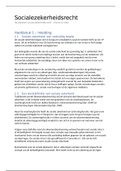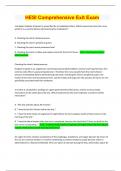Exam (elaborations)
LLW2601 Assignment 2 Semester 2 2024 | Due 13 September 2024
- Institution
- University Of South Africa (Unisa)
LLW2601 Assignment 2 Semester 2 2024 | Due 13 September 2024. Multiple Answers Provided. Read the following scenario before answer the question Vatiswa works for Tseba Taba Tsago Professionals (TTP). TTP employs people whose services it avails to its own clients in exchange for an agreed fixed...
[Show more]













